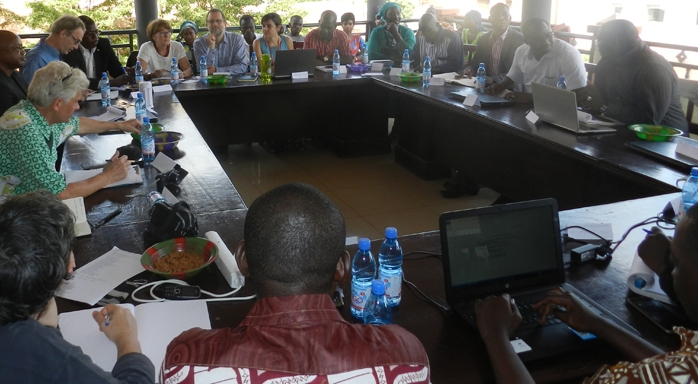[This post by Anna Bon is cross-posted from W4RA.org. See also the VU press release: VU looking further in Mali]
On 13 October 2016, the W4RA team organized and co-chaired, a Green Climate Funds workshop together with Malian farmer organization AOPP (l’Association des Organisations professionnelles paysannes). The objective of the meeting was to form a consortium and prepare a project plan, which will be submitted in the framework of this United Nations program.
The workshop was attended by representatives from the Dutch Embassy, the Swedish and Norwegian embassies, and by development (donor) agencies from the EU, Germany, the United Nations Capital Development Fund, the Global Environment Facility (GEF) and a range of Malian and Dutch development organizations.

Mali is one of the poorest countries in the world, plagued by the effects of climate change and a civil war in the northern regions. The effects of land degradation and desertification are a serious threat to the food security of millions of people, especially those living in rural regions.
Recently, the United Nations prioritized its support to Mali in the framework of the Green Climate Funds, a new programme to fight the effects of climate change on global scale. In response to a call for proposals, organizations in Mali are forming consortia, to prepare project proposals for funding by the Green Climate Funds.
Through ongoing interdisciplinary research collaboration, W4RA has obtained extensive experience in socio-technical field-based action research in West Africa. Building on partnerships with local partners (AOPP, Sahel Eco and Radio Rurale – Mali, Réseau MARP -Burkina Faso, University for Development Studies – Ghana) VU’s research programme W4RA wants to contribute to regreening, local knowledge sharing, local innovation and emerging rural agro-forestry value chains.
Meanwhile the W4RA is training students, through community service education, in rural Africa. This is done through the ICT4D master course (artificial intelligence, information science, computer science,) and various master research projects (Network Institute Academy assistants, various master research projects).